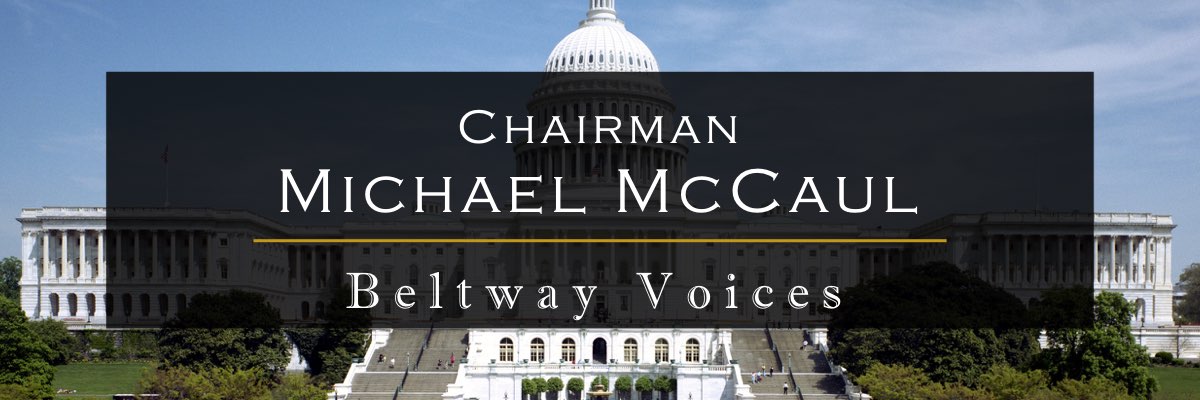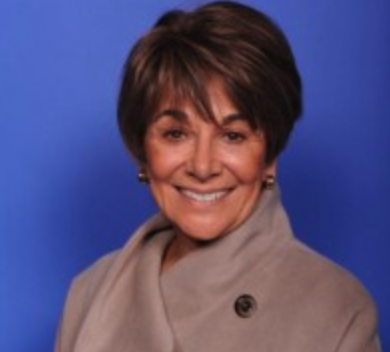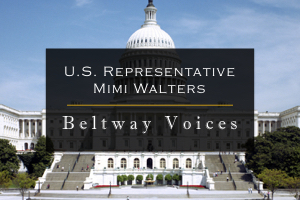House Homeland Security Chairman Michael McCaul (R-Texas) has long been dedicated to public service, and has established himself as a well-regarded policymaker on innovation and security issues. He began his career as a federal prosecutor in the Department of Justice’s Public Integrity Section, and later served as deputy attorney general for the state of Texas. His service continued as chief of counterterrorism and national security in the U.S. Attorney’s Office before he was elected to Congress in 2004.
In Congress, Chairman McCaul has led the influential House Committee on Homeland Security since 2013. The committee is charged with protecting Americans from a range of threats, including cyber attacks. In addition, Representative McCaul sits on the Committee on Foreign Relations, where he works to promote American interests abroad, and the Committee on Science and Technology.
Along with his committee work, Chairman McCaul is the co-founder and co-chair of the Congressional High Tech Caucus, the Congressional Cybersecurity Caucus, and the Childhood Cancer Caucus. He has been the recipient of a number of prestigious awards recognizing his work to foster innovation, including the Information Technology Industry Council’s Legislator of the Year in 2009, and TechNet’s Founders Circle Award in 2010.
As part of our Beltway Voices series, we caught up with Chairman McCaul to discuss a variety of issues important to developers.
Application Developers Alliance: Over the last two years, some policymakers in Congress and in a few statehouses have introduced what can only be described as short-sighted, knee-jerk bills mandating that developers deliberately undermine encryption. In today’s digital economy, encryption is rightly an industry norm; it’s good for developers, consumers, and most importantly, our national defense. Earlier this year, you teamed up with Senator Mark Warner (D-Va.) to offer legislation that would create a commission to study encryption. What led to this partnership and the bill? What would this commission mean for innovation and software developers?
Chairman Michael McCaul (R-Texas)
Chairman McCaul: Senator Warner and I were concerned that too many in the digital security debate were talking past each other instead of working together. Encryption is a key tool in protecting sensitive information, a bedrock of global commerce, and a foundational component of the internet. However, bad actors are becoming increasingly proficient at using encryption to hide their communications from law enforcement and our intelligence communities. This issue of competing security equities is one of the biggest problems we currently face, and we need to bring all sides of the debate together to help find ways to stop the bad guys in a world with more ubiquitous strong encryption, while ensuring we don’t undermine our security or Constitutional rights in the process.
In terms of software developers and innovators, this Commission is meant to bring their voices to the table as key stakeholders in the debate. They will be able to share their expertise and concerns with law enforcement, privacy groups, large technology companies, and others to ensure that policy on encryption isn’t technically ignorant or anti-innovation. At the same time, developers will be able to hear from law enforcement and the intelligence community to understand the challenges they face and attempt to help find solutions that will not undermine encryption, privacy, or innovation.
Application Developers Alliance: In 2013, you introduced a bill that would codify the Department of Homeland Security’s role in preventing cyber attacks directed at the federal government and the nation’s critical infrastructure. Supporters of the bill praised the public-private partnership it would create to combat cybercrimes. Doesn’t this underscore how important public-private partnerships are in an environment where cyber criminals are constantly looking to harm consumers and the nation? Are there other areas in the tech arena where the federal government and private entities can work together?
Chairman McCaul: That is absolutely right; cyber-security significantly impacts both the public and private sector; as such, we are stronger together on this issue. It only takes a few individuals with a laptop to bring down a company, agency, or a country. In order to stop cyber-attacks, the government and the private sector must stay one step ahead of would-be hackers.
Another key area for federal and private partnerships are innovations in highly regulated areas such as healthcare and education. There are major areas for improvement and economic growth in these regulated spaces, but they require a government willing to be flexible and a good-faith partner.
Application Developers Alliance: Some estimate that by 2020 there will be more than 200 million connected devices in the marketplace. These devices are making our lives more convenient, more prosperous, and healthier. Even with such promise, there are regulatory hurdles that deter developers from creating new and exciting products. What is your message to developers as they work to create the innovative products and services consumers demand?
Chairman McCaul: Technology will always surpass government’s ability to understand and regulate it. The federal government is too big, has too many bureaucratic agencies, and is focused on too many things at once to fully comprehend the capabilities on a new and exciting technology when it is released. I would say that developers should continue to “move fast and break things,” but that to whatever extent they can, work together with advocates like the App Developers Alliance to ensure that government doesn’t overreact to their innovations the entire ecosystem will be better off. I would also encourage any developers who find themselves hobbled by government action to reach out to my office so we can help create a better environment for growth and creativity in the industry.
Application Developers Alliance: An increasingly connected world is bringing new products online every day, some of which have life-saving potential. For example, one wearable device detects abnormal temperatures in skin cells, which can indicate breast cancer. What are your hopes for the Internet of Things in healthcare? Is there a role for the Childhood Cancer Caucus in medical IoT?
Chairman McCaul: There are so many incredible products and ideas in the health care space right now; your example of the wearable device that can detect breast cancer is a realization of my hope that through technology, we will be able to provide better care at a lower cost. I think we have only scratched the surface of the innumerable advances that connected technology can bring to improve healthcare for the average American.
In regards to pediatric Cancer, I believe that there is a clear role for the Caucus to play in furthering medical IoT. Anything we can do to decrease the hardship of families dealing with this horrible disease and make doctors more effective should be our top priority. Again, I welcome the engagement of the ADA and your member companies as to how we can use the Caucus to help further that goal.
Application Developers Alliance: Data’s important role in today’s economy cannot be overstated, but some are still critical of it and the transformations it is driving. Citing privacy concerns, some lawmakers seek to limit which data developers can collect and how long they can retain it. While these efforts are well-intentioned, they ultimately end up hurting consumers more than helping. Limits on data collection and retention stifle innovation and limit competition in the marketplace. Developers are good data stewards, and work hard to earn their customers’ trust because the growth of their companies depend on it. What role should Washington be playing in this debate?
Chairman McCaul: The American Internet economy has been built on the foundation of multi-purposing data collected within accepted privacy laws and practices. I think that any regulations around the collection and usage of data should be approached with a high level of scrutiny to avoid collateral damage. The “light-touch,” harm based standard has served the ecosystem well to this point and the value of big data will only increase from here.
Application Developers Alliance: In 2015, job search company Indeed’s chief economist noted that, “For over a decade, both employers and economists have observed a persistent talent shortage in tech.” Many technology companies are located in your district. What is Congress doing to promote STEM education and to better prepare students for the 21st century job market where nearly 80 percent of middle-skill jobs require some level of digital literacy?
Chairman McCaul: We absolutely must prepare our students better for an increasingly digital work environment. I would point you to legislation that was enacted last year that passed the House with over 400 votes. H.R. 1020, the STEM Education Act of 2015 makes numerous needed reforms to help increase our children’s digital literacy. This bill helps educators by expanding research and training opportunities for math and science teachers while codifying the field of computer science into the definition of STEM education for federal purposes. I also am working to highlight the need for a competent software development workforce and computer science education through the high tech caucus. Just a few weeks ago I hosted a briefing highlighting the hundreds of thousands
of vacant 6-figure jobs in the industry and advocating for greater Congressional focus on the issue.
Be sure to read all of the Beltway Voices interviews here.
Geoff Lane
U.S. Director of Policy and Government Relations








